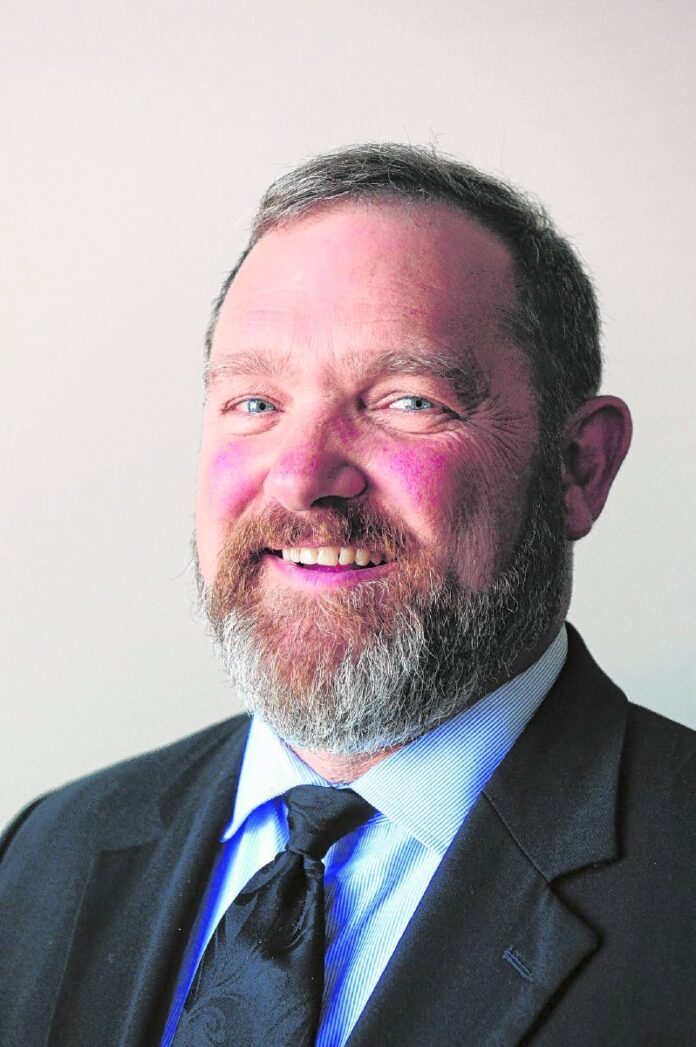Old Jack was in trouble, and he knew it. Luckily, so did a nephew down in Florida. He knew his uncle needed help, and he reached out on Facebook looking for someone local to his uncle who could check in on him after his heart attack. An angel named Sarah McKee answered the call. Groceries and visits and home-cooked meals over the months helped Jack, but finally it was time to head to the nursing home.
But Jack needed some stuff to settle in. Sarah knew Jack was a World War II veteran, so she reached out to a friend at the local American Legion Post in Greenfield. They posted a wish list, and the team swung into action. Tom Miller, a giant red-haired ex-soldier with a heart as big as his truck; Aaron Calloway-Koeller, representing the Sons of the Legion; and Laurie Bowman, the beloved commander of the 10th District, took on the mission and supplied their new friend Jack with everything he needed, and made a new friend on the process.
The power of social media for good was on display in Jack’s story. With a minimum of effort and a maximum of heart, resources were mobilized; rendezvous were set up; and delivery was made. All involved can feel good about their accomplishment.
The same week, I watched the Legion and Honor Guard perform another somber and moving ceremony for our next Vietnam KIA, Huger Phelps. Another set of family and friends experienced the fact that the veteran community had not forgotten their loved one. Social media allowed family to be found; friends to be contacted to speak; and pictures shared with distant relations.
I am currently reading a book called “Sapiens.” Subtitled “A Brief History of Humankind,” author Yuval Harari sheds light on the how and whys of our journey as a species. One story in particular stood out to me this week: the story of our transition from nomadic hunter-gatherers to town-dwelling agriculturalists. The salient point was that the human brain can effectively manage between 100 and 150 relationships. These early towns were inhabited by groups of about that many residents.
Harari likened the number to an infantry company of about a hundred soldiers. That has been the building block of armies since Roman times. The number dovetails with my belief in modern-day sales organizations that an effective salesperson can handle about that number of relationships with customers.
But social media is changing that dynamic. In many ways, it adds stressors to our lives. Instead of our normal number of relationships for our brain to manage, all of a sudden, we are taxing ourselves to remember people who would normally drop in and out of our lives unseen, and only vaguely remembered. We feel this stress, and our loved ones feel that we are not as attentive to them, especially if they are not as involved in social media.
But the benefits, if done correctly, can be extremely positive. Take Jack’s story. Could it all have happened with the old telephone tree of bygone days? Probably not as effectively.
So I am asking all my peers on social media to think about what they are posting. Simply ask yourself before you post something: Is this positive? Does this unite us? Does this bring joy to someone else? Does this make someone feel bad? Does this move us forward? Does this help Jack?
Also remember that the hundred relationships you manage in your brain are what really matter. Those are your family, your friends, your church and club comrades, your co-workers. When the dust settles in this brave new world, those are the people who will show up for you. Those, plus a few Sarah’s, Tom’s, Aaron’s and Laurie’s too.
Kurt Vetters, a longtime resident of Greenfield, is a U.S. Army veteran, author and local businessman. He can be reached at [email protected]. Send comments to [email protected].



